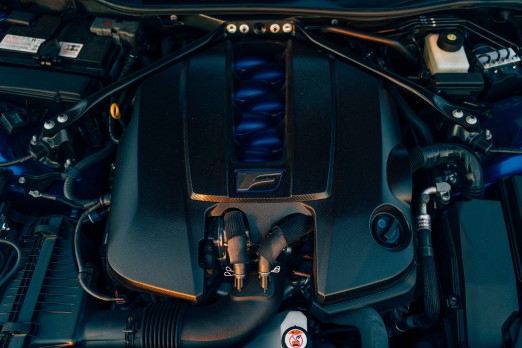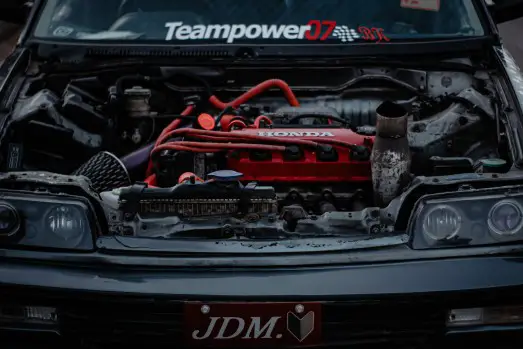In the world of automotive engineering, a truly remarkable engine is the beating heart of any great vehicle. It is the nexus where power, performance, and innovation converge to create an unforgettable driving experience. Throughout its storied history, Nissan, the Japanese automaker, has consistently delivered some of the finest engines in the industry. From high-revving, turbocharged beasts to reliable workhorses, Nissan’s engineering prowess has left an indelible mark on the automotive world.
Nissan’s legacy in engineering top-tier engines:
Nissan has a formidable reputation in the automotive industry and is widely recognized for its commitment to producing high-performance engines. Over its 80 years of existence, Nissan has consistently pushed the boundaries of engine innovation and performance. Nissan showed early on its capacity to produce engines that were extraordinary in production and reliability. Because of the company’s constant dedication to quality, engines that power its automobiles and set industry standards for automotive engineering have been developed.
Nissan has developed renowned engines that are now associated with strength, durability, and performance thanks to its unrelenting focus on technical breakthroughs and a keen awareness of the demands of drivers.

Best Nissan Engines:
The RB26DETT – Iconic Power and Performance:
One of the most recognizable symbols of strength and capability in the Nissan heritage is the RB26DETT engine. This inline-six, twin-turbo engine, which came from the RB series, was well-known for its strong build and remarkable performance. The RB26DETT, which made its debut in the storied Nissan Skyline GT-R, not only helped this sports vehicle reach new heights but also developed a cult following among motor fans.
The RB26DETT was well-known for its robust build and technologically advanced design, and it had an astounding array of features. Its inline-six design produced an exciting driving experience when combined with twin turbochargers and a sophisticated valve system. This engine gained popularity among tuners due to its legendary status and reputation for being highly adjustable and able to withstand significant power increases.
The RB26DETT’s significance extends beyond its technical characteristics. Its triumph in motorsport, especially on racetracks, cemented its legendary position even more. The engine’s history was influenced by its supremacy in touring car championships and its connection to Nissan’s motorsport triumphs.
VQ35DE – Balance of Performance and Reliability:
The VQ35DE engine is a symbol of Nissan’s engine lineup’s skillful fusion of dependability and performance. As a member of the VQ engine family, this V6 powerplant gained recognition for its remarkable harmony between reliability and power production.
The VQ35DE made its debut in the early 2000s, and because of its remarkable technological specs and creative design, it soon gained popularity among both reviewers and car aficionados. This engine demonstrated Nissan’s dedication to technical excellence with its aluminum-alloy block, continuously variable valve timing, and lightweight design. It produced both power and economy.
The VQ35DE was unique in that it produced a good amount of power while keeping a degree of dependability that was higher than that of many of its competitors in the same class. Installed in several Nissan vehicles, such as the 350Z, G35, and Maxima, the engine proved to be very resilient in the face of harsh road conditions, winning over customers looking for a strong yet reliable performance.

SR20DET – Compact Powerhouse and Tuner’s Favorite:
A famous engine in Nissan’s portfolio, the SR20DET engine is a little powerhouse that is adored by tuners and car fans alike. Due to its remarkable power-to-weight ratio and versatility in the tuning industry, this four-cylinder, turbocharged SR series engine quickly rose to popularity.
When the SR20DET was first released in the late 1980s, it was well-received for its small size and impressive power output. It was also lightweight. With the help of innovative turbocharging technology and an iron block and aluminum head design, this engine was able to outperform its weight class and provide remarkable performance in a compact, effective package.
The tunability of the SR20DET engine was what set it apart. This engine was well-liked by tuners and modders because of its strong construction and ability to provide notable power increases. The engine was popular among enthusiasts looking for significant power increases because of its capacity to withstand higher boost levels and modifications such as aftermarket turbochargers and engine control systems.
VK56VD – The Brawny V8 Power:
The VK56VD engine, which adds a combination of strength, performance, and innovation to the brand’s engine range, is a monument to Nissan’s venture into brutish V8 power. This eight-cylinder behemoth, which is a member of the VK engine family, is Nissan’s attempt to enter the V8 market and pursue higher displacement engines.
The VK56VD, which made its debut in the middle of the 2000s, was created to provide significant torque and power, which made it a great fit for Nissan’s heavy-duty applications, trucks, and SUVs. With its twin overhead camshafts, variable valve timing system, and aluminum build, this engine was designed to deliver plenty of power without sacrificing economy.
Applications for the VK56VD engine, such as the Nissan Titan and Armada, demonstrated the engine’s impressive performance and hauling capacity. Known for generating substantial power at reduced engine speeds, it demonstrated itself as a dependable workhorse fit for both daily driving and carrying duties.
The Future of Nissan’s Engine Technology:
Nissan’s engine technology is about to undergo a dramatic change that will be impacted by the world’s trend towards advanced propulsion systems, sustainability, and electric vehicles. Like other automakers, Nissan is embracing these modifications, signifying a significant shift in how they approach engine research and development.
- Electrification and EV (Electric Vehicle) Technology: Nissan is making significant investments in EV technologies. Their dedication to all-electric propulsion systems is demonstrated by the way their portfolio of electric vehicles, which now includes models like the Nissan LEAF and Ariya, is still growing and evolving. On Nissan’s vision for electric vehicles, more developments in battery technology, charging infrastructure, and range capabilities are expected to be prioritized.
- Hybridization and e-Power Systems: It is expected that Nissan will continue to improve its e-POWER technology, which combines electric power with internal combustion engines. Hybrid systems that reduce emissions and give improved economy, range, and power may be essential in the transitional period leading up to full electrification.
- Advanced Powertrains and Fuel Efficiency: It is anticipated that Nissan will keep searching for extremely efficient internal combustion engines. As the corporation navigates the shift to electrification, innovations in traditional engines’ performance, fuel economy, and lower emissions may still be relevant.
- Autonomous and Connected Systems: Nissan is going to incorporate its engine innovations with connected and autonomous systems as the automobile industry develops. These developments will necessitate power trains that can accommodate higher levels of processing power, communication, and self-driving capabilities.
- Focus on Sustainability: Eco-friendliness and sustainability will be given top priority in Nissan’s next engines. Their dedication to using recyclable materials, alternative fuels, and efficient engines to lessen their carbon footprint and environmental effects will continue to influence engine technology.
- Continued Research and Development: Nissan will need to make significant investments in R&D. To shape Nissan’s engines of the future, constant innovation and testing of novel materials, engineering concepts, and powertrain architectures will be essential.
Frequently Asked Questions (FAQs):
What is Nissan’s ideal engine?
Nissan’s ideal engine welcomes electrification and emphasizes all-electric models like e-POWER and e-4ORCE to demonstrate the brand’s dedication to high-performance, environmentally friendly transportation.
Are Nissan engines any good?
Indeed, Nissan has a record of accomplishment in manufacturing a variety of dependable and powerful engines that have won accolades for their harmonious blend of strength, economy, and style.
Which engines are used by Nissans?
Nissan’s vehicle portfolio features a wide variety of engines, such as the well-liked VQ series V6 engines, the QR series four-cylinder engines, the MR series turbocharged engines, and the e-POWER and e-4ORCE electric powertrains for EVs (Electric Vehicles).
Do Nissan engines have a long lifespan?
Indeed, a lot of Nissan engines are renowned for their dependability and long lifespans; with the right maintenance, they can typically get high mileage.
Conclusion:
In summary, Nissan’s history of creating world-class engines is one of constant innovation, flexibility, and a resolute dedication to satisfying the wide range of demands of drivers everywhere. Nissan has demonstrated its commitment to pushing the frontiers of engine technology with the development of famous powerhouses like the RB26DETT and innovative e-POWER and e-4ORCE systems. The company has also won praise for its performance, dependability, and innovative approach.

